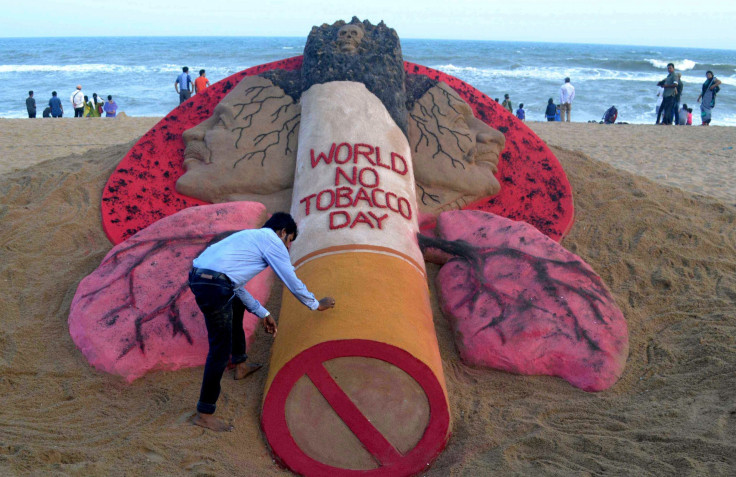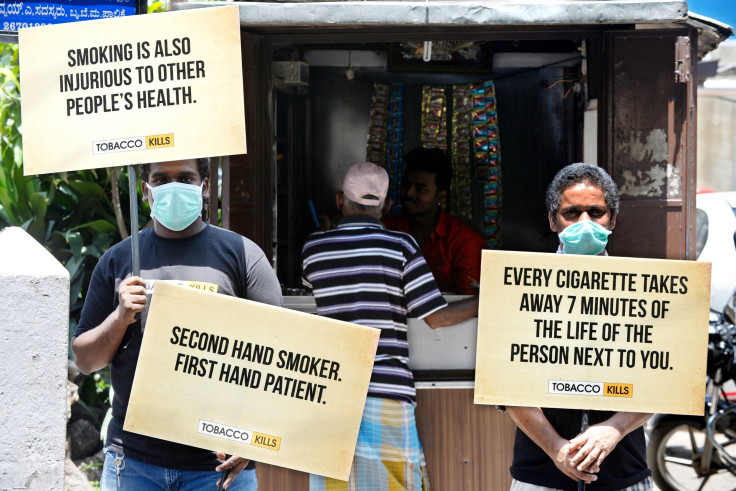World No Tobacco Day 2017: What Happens After You Quit Smoking

On account of World No Tobacco Day observed May 31 every year, the World Health Organization (WHO) issued a press release stating if people take action to eradicate tobacco around the world, it "can help countries prevent millions of people falling ill and dying from tobacco-related disease, combat poverty and reduce large-scale environmental degradation."
This year, WHO is focusing on the damage tobacco can bring around the world, thus asking governments to ensure implementation of strict tobacco control measures.
"Tobacco threatens us all," said WHO Director-General Dr. Margaret Chan. "Tobacco exacerbates poverty, reduces economic productivity, contributes to poor household food choices, and pollutes indoor air," he said.
"But by taking robust tobacco control measures, governments can safeguard their countries' futures by protecting tobacco users and non-users from these deadly products, generating revenues to fund health and other social services, and saving their environments from the ravages tobacco cause," Dr. Chan added.
Read: What Is Brain Bleeding? Female Smokers Suffer Strokes More Than Men From Smoking Tobacco Products
On this day, many Chinese experts have also agreed to WHO’s emphasis on having stronger controls on tobacco. China, being the world’s largest tobacco producer and consumer, has more than 300 million tobacco smokers. China’s tobacco consumption alone accounts for 44 percent of the entire world’s consumption. However, the country has been taking numerous methods to control this and also increase public awareness on the damages tobacco can have on their health as well as the environment, according to the official English-language website of China News Service.

On World No Tobacco Day, here is a timeline that explains what happens after you quit smoking:
According to Healthline, 20 minutes after you quit smoking, the effects are felt immediately. Your heart rate will begin to change back to its normal levels in less than 20 minutes of your last cigarette.
Two hours after you have quit, your blood pressure will drop down gradually to near normal levels along with your heart rate. The tips of your toes and fingers might start to feel warm as blood circulation will improve eventually.
Withdrawal symptoms generally tend to start around this time and the early ones would include:
- intense cravings
- increased appetite
- drowsiness or trouble sleeping
- anxiety, tension, or frustration
Once you have quit smoking for 24 hours, your risk of heart attack will reduce significantly and the risk of coronary artery disease will also reduce, which is the most common form of heart disease that leads to the most number of deaths in the U.S., according to National Heart, Lung and Blood Institute.
You will have a sense of improved smell and taste after you have quit for 48 hours.

After three days, the nicotine is completely out of your body and that might mean you will experience physical and emotional symptoms due to withdrawal.
Once you stop smoking for a week or more, your body will be more flexible to exercise and for most smokers, the withdrawal symptoms begin to be insignificant after a few weeks.
One to nine months after you have quit, your lungs will start to function properly again and thus reduce the risk of infection.
A year after you have quit smoking, your risk of suffering from a heart disease will decrease by 50 percent as compared to smokers.
However, it might take 10 years after you have entirely quit smoking to reduce the risk of lung cancer and other types of cancers most likely to affect smokers.
© Copyright IBTimes 2025. All rights reserved.






















